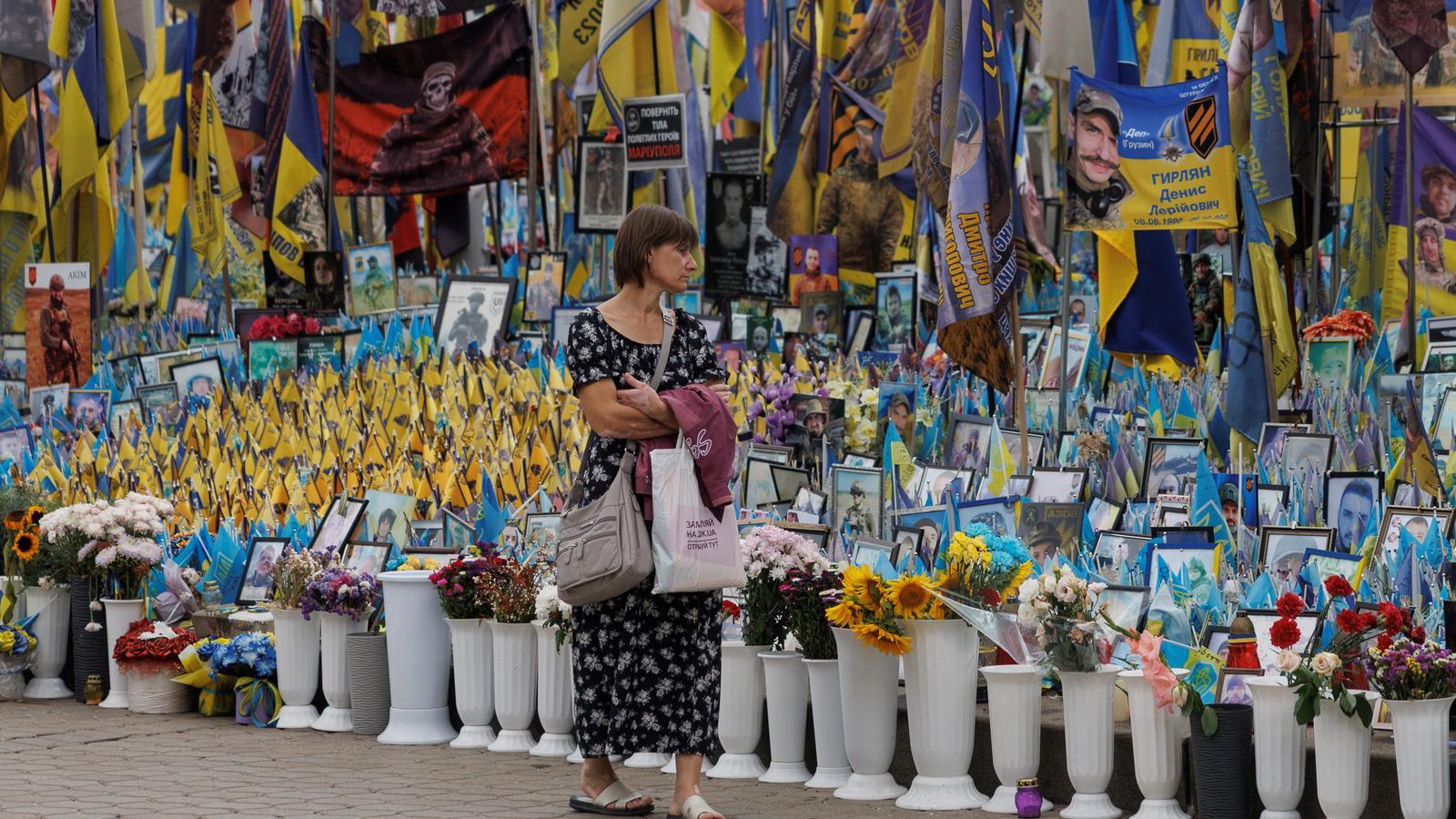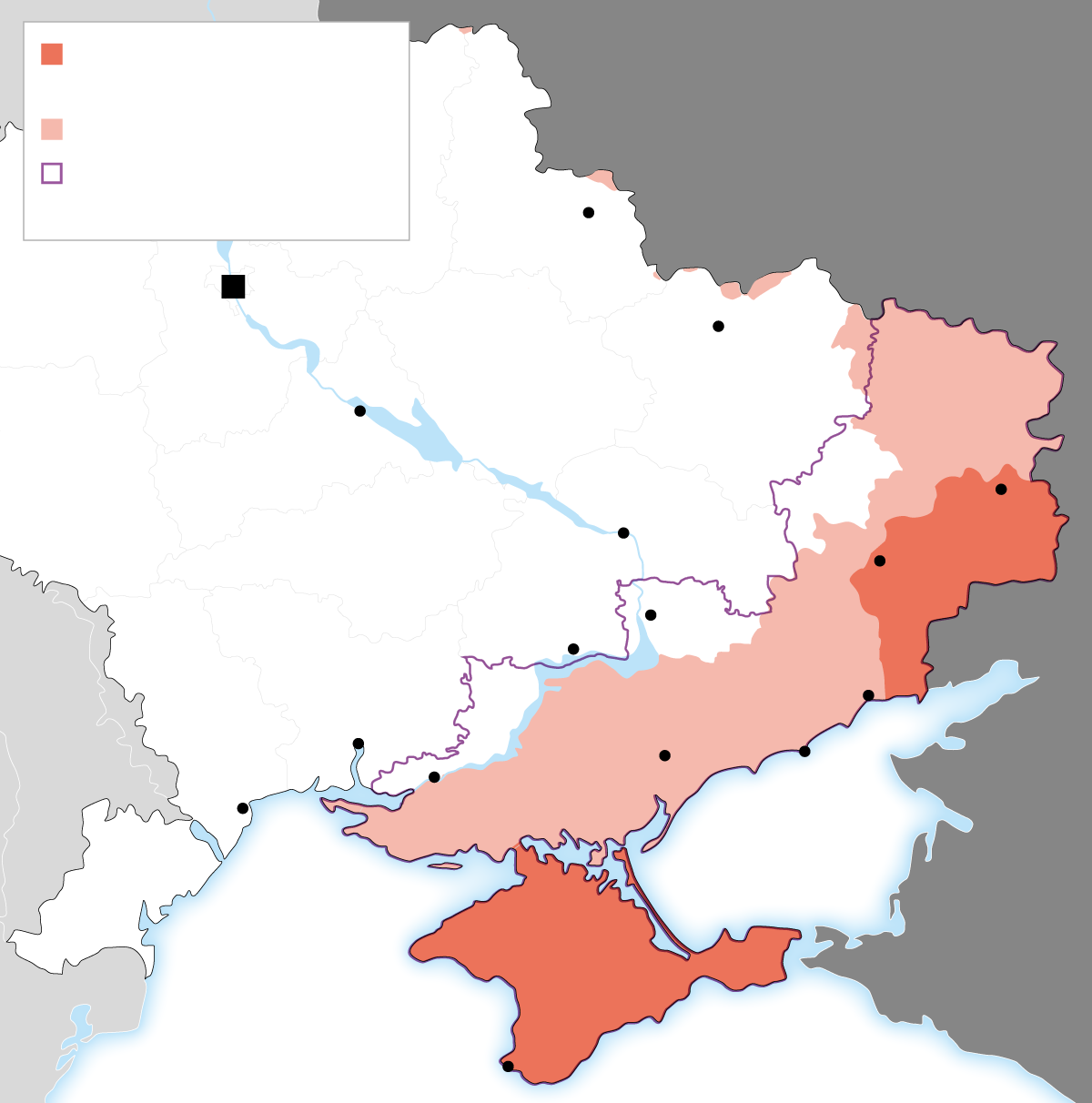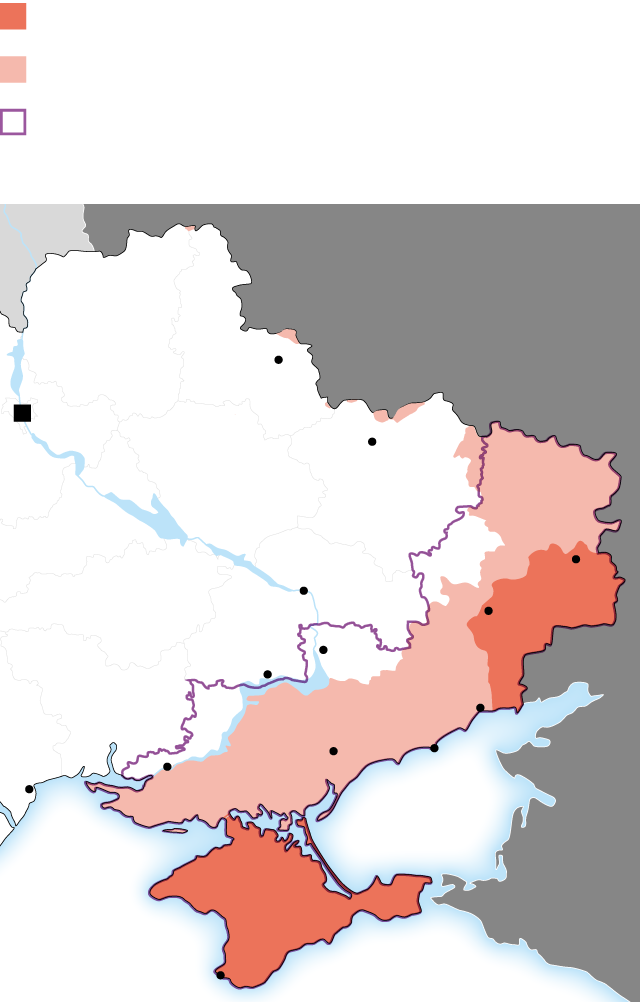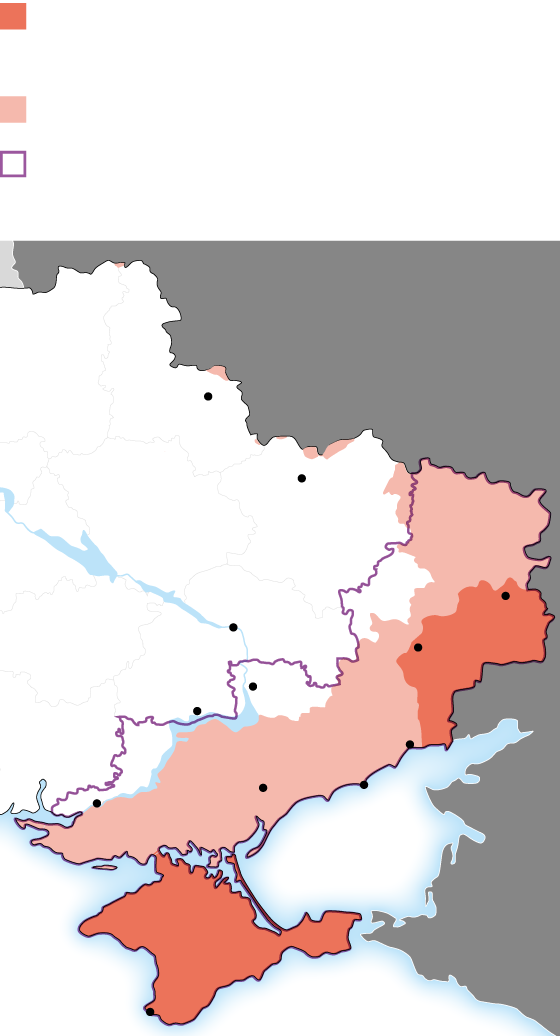Peace is negotiated in Alaska, war is gathering in Ukraine
"This is all a circus, Russia is just trying to buy time," says a commander from the Donetsk front.


Special Envoy to KievThe war was proceeding completely normally yesterday morning in downtown Kiev.
The wailing of air raid sirens echoed resoundingly in the sky above the capital, warning of the arrival of enemy drones. Ukrainian machine guns were trying to shoot down the Russian projectiles: ratatatatanoA louder explosion followed. The people strolling through Independence Square didn't even flinch: The human species knows how to adapt to almost everything. A soldier looked at the sky out of the corner of his eye. "This last explosion means we've screwed the damn [Russian] drones." The soldier was in the square to pay tribute to a comrade who died in combat on the Donetsk front: Maksym, 34. Russian shrapnel pierced his chest in early August. Three more children will be orphaned.
The war also continues with a desperate normality in the Ukrainian trenches. Normality ends up trivializing war. War ends up trivializing lives.
A family was approaching the square to plant another flag. Every flag that flies on this altar honors the corpse of a soldier. It's impressive to think about: it's impossible to count the tens of thousands of flags there. It will be impossible to know how many young people have lost their lives in this war. The deceased's mother was crying and unable to speak. The brother, 28, also a soldier, spoke.
—My brother disappeared a year and a half ago during an offensive on the Avdiivka front. He is presumed dead.
—Do you think he could be alive?
—My mother is sure that one day he will return home on his own two feet.
—I wish.
—I find it hard to be optimistic. I've been there, and I know what hell is like.
Three and a half years have passed since Vladimir Putin invaded Ukraine, and the memorials to fallen heroes continue to grow. At this one in Kiev, the largest in the country, a photograph of the victim usually accompanies each flag. The portraits pile up because they don't fit. War piles up. War accumulates. The passage of time has faded and erased the faces of some fallen soldiers. They must have been the first. It's a sad metaphor: photo frames frame nothingness.
Also sad are the objects left around the flags: stuffed animals, artificial flowers, candles, bracelets, unopened beers, handwritten letters. "My soul is shattered by your absence. You didn't teach me how to live without you," wrote a daughter to her father, Private Mykjailo, a member of an airborne assault brigade. He died on February 16 on the Kharkov front. He was 39. "I love you," the letter reads. And I love Ukraine, says a huge illuminated sign in the center of the square.
"I think we'll have some good news in Ukraine soon," Donald Trump declared on Tuesday. He made a similar statement on May 14. Trump based part of his election campaign on the assurance that the war would end within 24 hours. Since he became president of the United States again, 5,193 hours have passed. That's 216 days. And the war will continue: On Friday, dozens of soldiers were waiting to board the trains that would take them to the front. Wagons are needed for war. The war is becoming increasingly deadly. The perfected use of drones has skyrocketed casualties on both sides. The drones pursue soldiers, silently and precisely, to their deaths. At the station, the PA system tried to encourage the men about to fight: "We hope to soon regain the lines in Mariupol, Luhansk, Donetsk [...]." These are territories occupied by Kremlin forces. The soldiers, already dressed in uniform, did not raise their gaze from their own. smartphones. TikTok, Instagram, Telgram and Tinder are escape channels.
It would be interesting if the station's PA system could contact Commander Delfin, who leads a battalion on the Chasiv Iar front. Commander Delfin isn't so optimistic. Commander Delfin is answering the ARA by phone from his positions.
"What is the situation on the battlefield?"
"In 2022, I made a statement that caused a stir. I said the situation was difficult but under control. Now, all I can say is that the situation is difficult."
"Why?"
"The enemy vastly outnumbers us in strength, pressure, and manpower." We can only resist its advance. And I think we're succeeding. But right now it's very difficult to make up ground.
—Did you see the images of Trump and Putin in Alaska?
—It was an insult to the Ukrainians. The United States welcomed a murderer with a red carpet and applause. The civilized world said Putin was a war criminal and that wherever he set foot he would be arrested. Well, we've seen it.
—Do you believe in negotiations to reach a ceasefire?
—Not at all. This is all a circus, a theater. The reality of war is what we see on the front lines. These negotiations are just an excuse for Putin to buy time, concentrate more forces, and prolong the war as long as possible. He who likes to eat never misses the first course.
Commander Delfin's opinion is shared by a large portion of Ukrainians. One message prevails: ceding territories to Russia to end this war is not a definitive solution, because they believe that, in a few years, the Kremlin will attack again to finish the job.Soldiers and civilians alike laughed when I asked them if they thought the war would end soon.
More attacks against civilians
On June 17, a sad video went viral in Ukraine. A father and mother in a state of shock mourned in silence the death of their 31-year-old son. His name was Dmytro Isayenko. A Russian missile blew up the building where they lived in Kyiv. The young man was buried under the rubble. His parents remained motionless during the hours of the rescue. Their crying became more intense when they found the body. The Russian missile killed 30 civilians that day. Entire families lost their lives. On August 1, a similar bombing caused another massacre in another part of the Ukrainian capital. 31 civilians died after a missile hit and destroyed a 10-story residential building.
The Russian military has intensified its bombing of Kyiv. Bombs sometimes kill even when they don't. Every explosion that reverberates in the sky undermines the morale of the population and increases the pressure on Zelensky at a hypothetical negotiating table. Putin knows how to play psychological warfare. Ukrainians panic when someone gets distracted and throws a firecracker or lights fireworks in the sky. The government has restricted its use. The United Nations has warned that this summer's civilian death toll is the highest since 2022..
"We're 25 meters from hell. We were reborn," Oleksander, an 83-year-old man, told me. He and his wife, Anastasiya, are among the few neighbors who still live in the block next to the building bombed on June 17. On Friday, they insisted on showing me the house: all the glass was blown out, and now they're using plastic sheeting to cover the windows. The rain and the wailing of crows added to the precariousness of the scene. The air raid sirens, wailing again in the capital, seemed like a bad joke. "We're lucky, we're lucky. So many of our neighbors died. Thank God, we're lucky." To say goodbye, I offered them my hand. They refused because I was under a door frame. Slavic tradition says that shaking hands under a doorway brings bad luck. "Better not play with these things. We've already used up all our remaining luck."
Superstitions are heightened in a country at war. So are the macabre calculations about where it is easiest and where it is hardest to die.
In Kiev, they say the safest areas are those near the embassies and the city center. They also say things are changing because Russian missiles are increasingly able to overcome the capital's air defenses: Russian drones have even flown over Maidan Square. But Kiev remains a mirage: the landscape is darker in the towns near the front, which are less protected and where Russian attacks are daily. A Ukrainian journalist showed me a video recorded in the city of Kherson and distributed by the Kremlin's own soldiers: they were using a drone to play target practice against a civilian who was repairing the roof of his house. Finally, they hit him and he died. Wars normalize death and trivialize life.
Calculations, then, end up being useless, and a simpler logic always prevails. She summarized it for me a year ago, A woman in Pokrovsk, a city in Donbas now under siege and evacuated: "If it has to touch you, it will. There's no need to go into it any further." Where could that woman be?
Explosive diet on the Maidan
The war was proceeding quite normally last night in the center of Kiev.
In the capital, The curfew comes into effect at midnight, but most restaurants and shops close at least an hour earlier. Only a McDonald's and a kebab shop served food after 10: an explosive diet. "The city has fallen asleep. There's no party. We're at war," a 24-year-old told me. His name was Artem, and he explained that he's from the Kherson region, a town now occupied by Kremlin troops. He fled to Kiev days before the war broke out. He'll soon join the army to try to recapture the occupied territories.
"And where is your family?"
"In the occupied areas. They live under the control of Russian monkeys."
"Can you talk to them?"
"On Telegram, sometimes. But it's dangerous for them, and the Russian government often cuts off their access."
—What do you think about the war?



